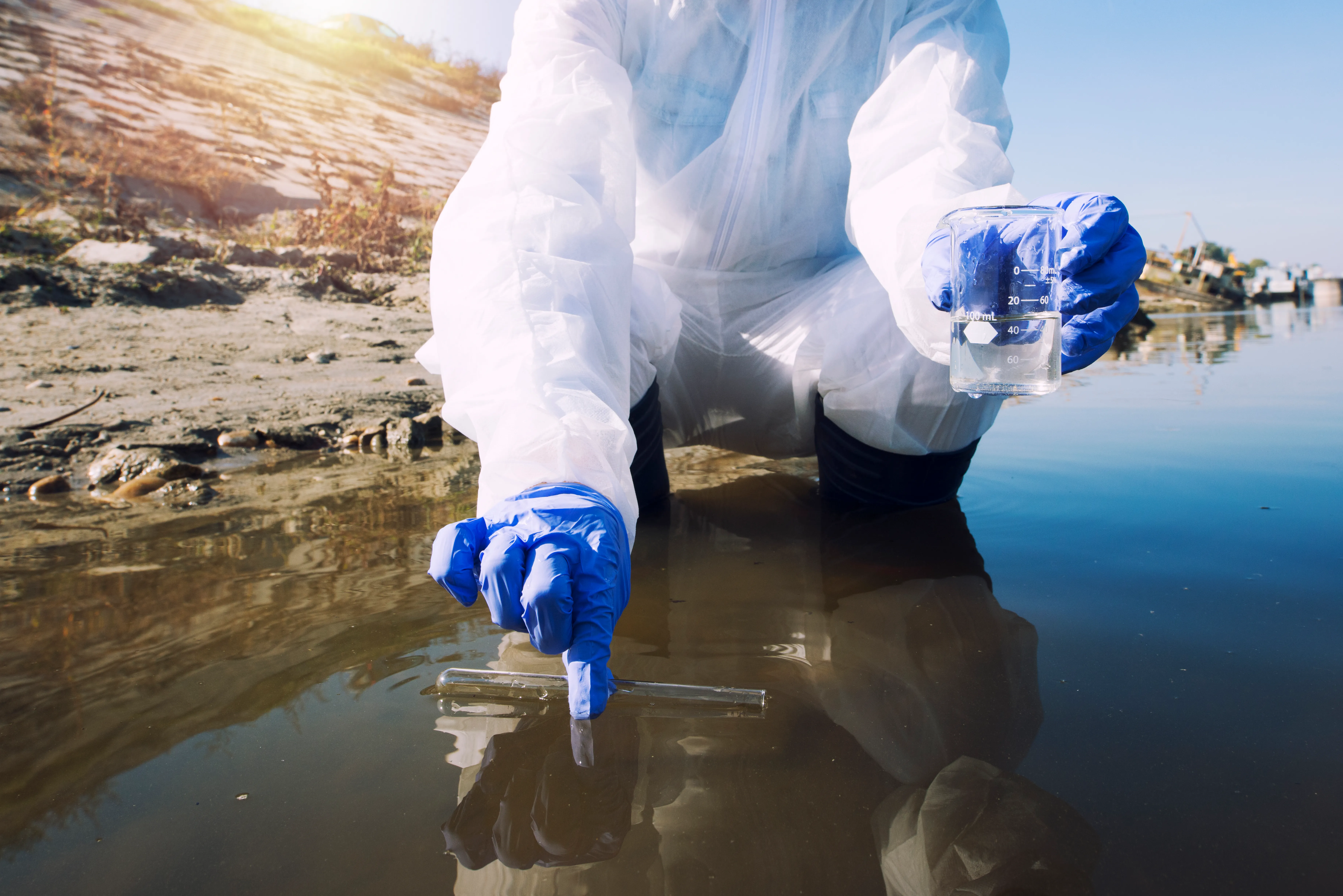Waste management is an issue of concern to corporations, governments and communities that are on the increase. With our increased concern about sustainability and environmental safety, the way we get rid of waste is more important than ever. One of the essential processes in safe waste disposal is WAC testing, also known as Waste Acceptance Criteria testing.
WAC testing has a number of benefits; one of them is that it makes the waste properly managed before it is put into the landfills. It is instrumental in maintaining our environment clean and safe. METS Lab is a company that offers quality WAC testing services in order to ensure that industries are able to maintain compliance and environmental responsibility. We also offer expert services like wastewater testing lab support and water drinkability test analysis to protect public health and natural resources.
What Is Waste Acceptance Criteria Testing?
Waste Acceptance Criteria (WAC) testing is a method to check if waste is suitable for a specific type of landfill. It does not even observe what is contained in waste but examines how the waste may act with the flow of time.
The testing procedure involves such measures as:
- Leach potential (permeability to leakage of the pollutants)
- pH levels
- Heavy metals or salts presence
- Chemical oxygen demand
- Organic matter content
Through testing of these factors, WAC contributes towards ensuring that no harmful substances slip into the environment through landfills. This preserves soil, air and water.Why Is It Required?
Different types of refuse have different landfills. There are those that do not accept inert waste such as bricks or clean soil. Hazardous or non-hazardous waste can be dealt with by others. That is to say that when wrong wastes get in the wrong landfill, pollution and health risks may occur.
That’s where Waste Acceptance Criteria comes in. WAC testing tells landfill operators and waste producers what kind of landfill is appropriate for a particular waste. It provides guarantees that:
- Toxic chemicals do not seep into the ground or soil water supply
- Wastes are managed using environmental laws
- The landfill remains at moderate operation levels
WAC testing is particularly significant in case of materials that can cause water system problems. That’s why it's often linked with wastewater testing lab services and water drinkability test programs to monitor the broader environmental impact.
What Is Included in a WAC Test?
WAC testing is a complex procedure which involves:
- Leachate analysis: Wastes are placed in water and the water is tested to determine toxic substances.
- Heavy metals: Tests of items such as lead, cadmium, and mercury.
- Chlorides, sulphates and fluoride: They may have chemical reactions at landfill.
- Chemical oxygen demand (COD): Shows the amount of oxygen which would be consumed by the waste in case it found its way into the water.
- Total organic carbon (TOC): Excessive amounts may raise gas production in landfills.
- These values are matched with set values to see whether the waste is safe to adopt in a particular landfill.
When Do You Need WAC Testing?
WAC testing must usually be carried out if you intend to landfill the waste to a non-inert landfill. This is in the case of:
- Wastes at construction sites
- Industrial by-products
- Contaminated soil
- Demolition materials
It is not sufficient that they discover what is in the waste (classification). Waste Acceptance Criteria testing shows how the waste will behave and if it could be harmful later on.
At METS Lab, we assist you in managing this end-to-end. Our lab offers not only WAC testing but also expert services like wastewater testing lab analysis to ensure your site meets environmental guidelines.
How WAC Testing Supports Water Protection
Pollution of water is one of the greatest dangers posed by ill-handled waste. When waste products containing harmful materials get into our water supply, they may cause irreparable harm.
This is prevented in a large measure through WAC testing. It informs you whether the waste may cause leaks serving as a source of contamination to groundwater or rivers. This leachate may, in certain situations, pollute drinking water or damage local ecosystems.
To monitor and prevent this, testing services like wastewater testing lab analysis and water drinkability test programs are often used alongside WAC testing. This assistance makes sure that our water remains secure and clean.
Why It’s Not the Same as Waste Classification
It’s important to understand the difference between Waste Acceptance Criteria and waste classification:
- Waste classification describes the contents of waste (e.g. chemicals, materials).
- WAC testing is used to determine the behaviour of waste (e.g. will it leak, and does it pollute?).
Most often, you require both. The classification of waste also gives it the right label and mode of transportation, and WAC testing provides a right choice of landfill.
Benefits of WAC Testing
The WAC testing has a number of advantages:
- Legal conformance: Adheres to the legal requirements concerning waste disposal on the national and local levels.
- Protecting the environment: Maintains safety of land, air and water.
- Cost management: Prevents the fines and wasting of disposals.
- Public safety: Lowers the risk of pollution.
- Long-term sustainability: Aids in creation of cleaner operations.
When WAC testing is done properly, it protects the environment and supports other services like wastewater testing lab analysis and water drinkability test efforts.
How METS Lab Supports Environmental Testing
METS Lab offers tailored environmental testing services to industrial, municipal and construction clients. We provide certified Waste Acceptance Criteria testing backed by years of technical experience.
In addition to WAC testing, we also have:
- Wastewater testing lab services for plants, industries, and municipal bodies
- Water drinkability test programs for public health and home use
- Testing of soil, noise, and air quality
- Environmental monitoring in-store and outside the store
- Compartmentalized REACH and emissions study
We operate using contemporary laboratory tools, adhere to UK standards on the environment, and provide efficient, quick reports. Learn more at METS Lab.
Waste Acceptance Criteria testing is a vital step in today’s waste management system. It guarantees safe disposal of wastes by appropriate form of a landfill and avoids environmental hazards.
It works hand-in-hand with essential testing services like wastewater testing lab analysis and water drinkability test checks. All these services contribute to a safe environment and healthy communities.
No matter what waste you have, whether construction or industrial waste, testing is mandatory, not optional. We at METS Lab are here to support you in every endeavour with truthful and responsible testing support.


